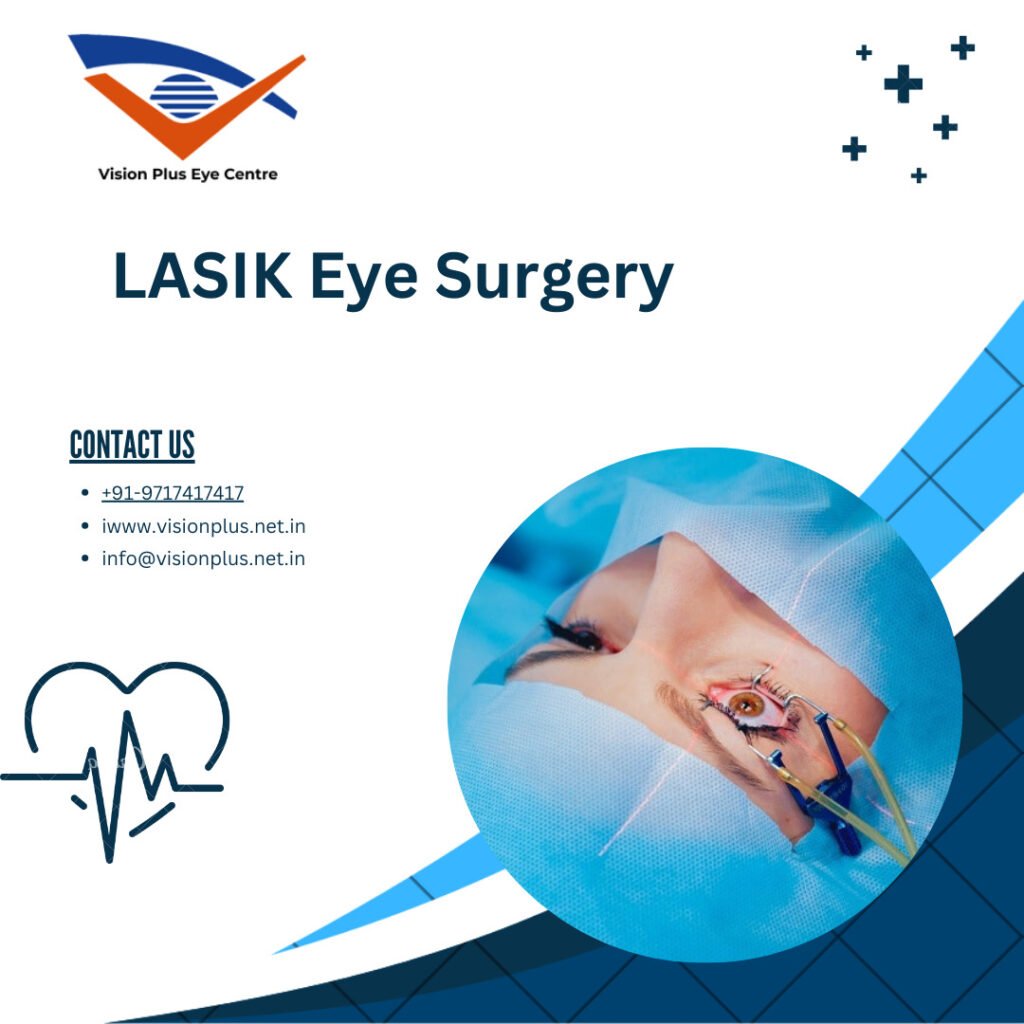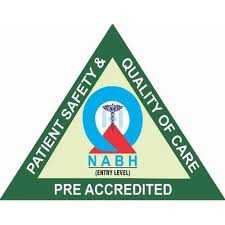
Imagine waking up in the morning and being able to see clearly without reaching for your glasses or fumbling for your contact lenses. For many people, LASIK eye surgery has turned this dream into a reality. Laser-Assisted In Situ Keratomileusis, or LASIK, is a popular refractive surgery that can correct nearsightedness, farsightedness, and astigmatism, reducing or eliminating the need for glasses or contacts. In this comprehensive guide, we’ll explain what LASIK is, who makes a suitable candidate, and what to expect during and after the procedure.
What is LASIK Eye Surgery?
LASIK is a surgical procedure designed to reshape the cornea, the clear, front surface of the eye, in order to improve how light rays are focused on the retina. By adjusting the shape of the cornea, LASIK can correct common vision problems, including:
- Nearsightedness (myopia): Difficulty seeing distant objects clearly.
- Farsightedness (hyperopia): Difficulty seeing close objects clearly.
- Astigmatism: Blurred or distorted vision caused by irregular corneal shape.
LASIK is a type of refractive surgery, meaning it aims to “refract” or bend light rays to focus properly on the retina, which is essential for clear vision. The goal of LASIK is to reduce or eliminate the need for glasses or contact lenses.
Who is a Candidate for LASIK Eye Surgery?
While LASIK can be a life-changing procedure for many people, it’s not suitable for everyone. The ideal LASIK candidate typically:
- Has Stable Vision: Your prescription for glasses or contact lenses should have remained relatively stable for at least one year before considering LASIK.
- Meets Age Requirements: Most LASIK candidates are at least 18 years old, although some surgeons prefer patients to be in their mid-20s when vision is more likely to have stabilized.
- Has Good Overall Eye Health: Candidates should have healthy eyes free from diseases, infections, or injuries that could affect the healing process.
- Has Realistic Expectations: LASIK can greatly reduce dependence on glasses or contacts, but it may not provide perfect vision. Candidates should have reasonable expectations about the results.
- Is Not Pregnant or Nursing: Hormonal changes during pregnancy and breastfeeding can affect the stability of your vision, so LASIK is typically not recommended during these times.
- Has No Active Eye Conditions: Conditions such as glaucoma, cataracts, or severe dry eye may disqualify you from LASIK. However, some alternative refractive procedures may be suitable.
- Is in Good General Health: Candidates should be in good physical and mental health, as some medical conditions or medications could impact the healing process.
- Has Sufficient Corneal Thickness: LASIK involves reshaping the cornea, so you must have adequate corneal thickness to ensure a safe and effective procedure.
It’s essential to undergo a comprehensive eye examination and consultation with an experienced LASIK surgeon to determine your candidacy. They will assess your eye health, discuss your visual needs and goals, and answer any questions you may have.
The LASIK Procedure: What to Expect
LASIK is a relatively quick outpatient procedure that usually takes less than 30 minutes for both eyes. Here’s a step-by-step breakdown of what to expect during the LASIK procedure:
1. Numbing Eye Drops: Before the surgery, numbing eye drops are applied to ensure you remain comfortable throughout the procedure. You may also receive a mild sedative to help you relax.
2. Creation of a Flap: The surgeon will create a thin corneal flap using a microkeratome (a precision surgical instrument) or a femtosecond laser. The flap is gently lifted to expose the underlying corneal tissue.
3. Reshaping the Cornea: Using an excimer laser, the surgeon reshapes the exposed cornea. The laser precisely removes small amounts of tissue to correct your specific vision problems. The reshaping process is guided by a detailed map of your eye’s unique characteristics.
4. Replacing the Flap: After reshaping, the corneal flap is carefully repositioned without the need for sutures. It adheres naturally to the eye’s surface.
5. Post-Operative Care: You will rest briefly, and the surgeon will examine your eyes to ensure proper alignment and flap positioning. You’ll receive protective eye shields to wear while sleeping to prevent accidental rubbing or pressure on the eyes.
What to Expect After LASIK Surgery
The recovery period following LASIK is relatively quick, with most patients experiencing significant improvement in their vision within the first 24 to 48 hours. Here’s what you can expect in the days and weeks following the procedure:
1. Immediate Improvement: You may notice a significant improvement in your vision immediately after the procedure. However, your vision may fluctuate during the first few days as your eyes heal.
2. Mild Discomfort: Some patients experience mild discomfort, such as dryness, scratchiness, or a foreign-body sensation in the eyes. These symptoms typically subside within a few days.
3. Follow-Up Appointments: Your LASIK surgeon will schedule follow-up appointments to monitor your progress and ensure your eyes are healing correctly.
4. Gradual Stabilization: It can take several weeks for your vision to stabilize fully, so don’t be alarmed if you experience minor fluctuations during this time.
5. Avoidance of Certain Activities: Your surgeon will provide guidelines on activities to avoid, such as swimming or strenuous exercise, for a specified period following LASIK.
6. Long-Term Care: While LASIK can provide long-lasting results, it’s essential to maintain good eye health by scheduling regular eye examinations and following your surgeon’s recommendations.
The Benefits of LASIK Eye Surgery
LASIK offers numerous benefits to eligible candidates, including:
- Reduced Dependence on Glasses or Contacts: Many LASIK patients achieve freedom from glasses or contacts, significantly enhancing their quality of life.
- Quick Recovery: Most patients can return to their normal activities within a few days after LASIK.
- High Success Rate: LASIK has a high success rate in achieving improved vision, and the procedure is continually advancing with cutting-edge technology.
- Enhanced Quality of Vision: LASIK often provides patients with crisper and clearer vision compared to glasses or contacts.
- Convenience: With LASIK, you won’t have to worry about cleaning or replacing contact lenses or carrying around glasses.
Conclusion
LASIK eye surgery is a safe and effective procedure that has transformed the lives of millions of people by providing clear vision without the need for glasses or contacts. It’s essential to consult with an experienced LASIK surgeon to determine your candidacy and discuss any questions or concerns you may have. If you meet the criteria and decide to proceed with LASIK, you can look forward to a potentially life-changing experience that offers
At Vision Plus Eye Centre, we demystify LASIK surgery. Discover if you’re a candidate and what to expect during the procedure. Our experienced surgeons and state-of-the-art technology ensure a safe, effective, and life-changing journey to clearer vision. Explore LASIK with confidence at VisionPlus Eye Centre.

